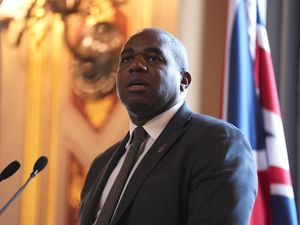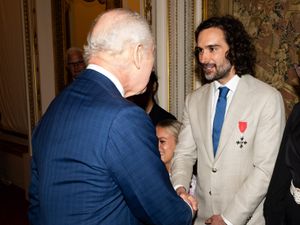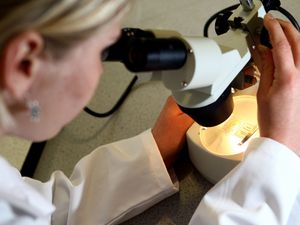Woman born at gates of Nazi concentration camp survived because of ‘luck’
Eva Clarke, 79, was born at Mauthausen concentration camp in Austria on April 29 1945.
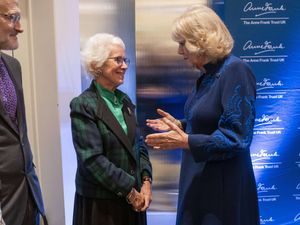
A woman who was born at the gates of a concentration camp after her mother volunteered to follow her husband to Auschwitz has said she survived because of “luck”.
Eva Clarke, 79, was born at Mauthausen concentration camp in Austria on April 29 1945, one day after it ran out of gas for the gas chamber.
Ms Clarke’s father Bernd Nathan, who was German and Jewish, met her mother when he travelled to Prague to escape the Nazis.

The couple married in May 1940 and were among the first people to be sent to Theresienstadt labour camp as they were “young, strong and well able to work”, Ms Clarke said.
Speaking to the PA news agency before Holocaust Memorial Day on Monday, she said the pair managed to survive in the camp for three years, a “remarkably long” period of time.
Despite men and women being separated at the camp, her parents managed to meet and her mother became pregnant with Ms Clarke’s brother.
The Nazis considered becoming pregnant in a concentration camp a crime punishable by death, Ms Clarke said, adding that they made her parents sign a document saying when the baby was born they would be handed over for “euthanasia”.
“My mother never heard the word euthanasia. She had to go and ask somebody what it meant,” Ms Clarke added.
Her brother was born at the camp in February 1944 but died two months later of pneumonia.
Of her and her mother’s survival, Ms Clarke said: “My mother always said luck had an awful lot to do with it, but at the end of September of 1944 their luck ran out, because it was on that day my father was sent to Auschwitz.”
Her mother, Anka (Nathan) Bergman, volunteered to follow her husband the next day because she had “no idea” where he had been sent, Ms Clarke added.

“Being the eternal optimist, she thought, well, as they had survived up to that point, she thought nothing could get any worse.”
“She never, ever saw him again, and she heard from an eyewitness that my father had been shot dead on a death march on the 18th of January 1945, near Auschwitz, and it was liberated on the 27th.”
Of her brother, Ms Clarke said: “His death meant my life and my mother’s life, because had my mother arrived in the Auschwitz Birkenau death camp holding my brother in her arms, they would have both been sent straight to the gas chamber.”
While pregnant with Eva, her mother was sent to Freiberg forced labour camp near Dresden where she worked on the V1 unmanned flying bomb.
Ms Clarke said: “She was there for six months, becoming progressively more and more starved and more and more obviously pregnant, and that was very dangerous for her.
“By the time the Germans realised she was pregnant, it was too late for her to be sent back to Auschwitz, to be killed, because Auschwitz had been liberated – so it’s another piece of luck.”
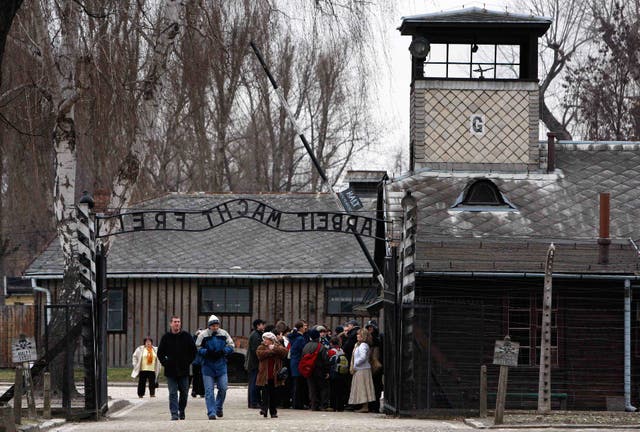
When the Nazis began to evacuate the camps, her mother was put on a coal train around the end of March 1945 and travelled for days with no food and hardly any water before arriving at Mauthausen concentration camp.
“So when she saw the name Mauthausen at the station, she had such a shock because, as opposed to when she’d arrived in Auschwitz not knowing what that was, this time she knew and she started to give birth to me on that coal wagon,” Ms Clarke said.
“She had to climb off the coal wagon. I was born at the gates of Mauthausen. “
She continued: “There are three reasons why we survived, and the first is, it’s a very chilling reason, on the 28th of April 1945 the Germans had run out of gas for the gas chamber.
“My birthday is 29th.
“The second indirect reason why we survived is because Hitler committed suicide on the 30th, and the third and the best reason why we survived was because on the fifth of May, the American Army liberated the camp.”
Ms Clarke now travels the world speaking at schools and events about her experiences as a survivor and has worked with charities including the Anne Frank Trust and the Holocaust Educational Trust.

